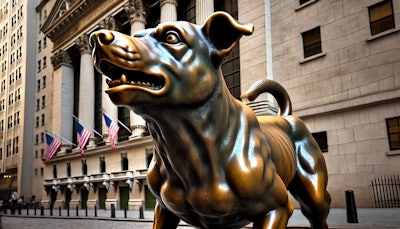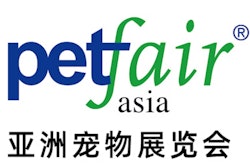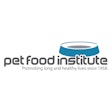
Publicly traded pet food companies demonstrated strong financial performance in 2024, bucking broader market challenges and signaling a continued recovery from post-pandemic normalization. Investment bank Cascadia Capital follows its own index of pet industry stocks, including Nestlé, J.M Smucker, Chewy and FreshPet. According to Cascadia Capital's Pet Industry Overview - Summer 2025, revenue for the bank’s index of publicly traded pet industry companies rose 6.9% year over year in 2024, up significantly from 1.9% growth in 2023. Earnings growth was even more impressive, with adjusted earnings per share increasing 20.1% compared to 11.3% the previous year.
“In summary, top-line growth has moderated following pandemic highs, but bottom-line performance (earnings per share) continues to recover, underpinned by improved market operational efficiencies across the landscape,” Cascadia’s analysts wrote. “This correlates with increasing investor focus on profitability over pure growth.”
The analysts attributed the pet food industry’s robust earnings growth to declining supply chain pressures and better realization of price increases implemented in prior years. The market's pivot toward profitability and operational efficiency over top-line expansion appears to be yielding results for pet food companies.
Pet food companies’ stock performance mixed
Among the top performers, Freshpet continued its upward trajectory with net sales of US$975 million in 2024, representing a 27% increase year over year. The company has now logged seven consecutive years of over 25% net sales growth. Freshpet’s adjusted EBITDA rose to US$162 million, up from US$67 million in 2023, supported by gross margin expansion and reduced logistics costs. However, following its first-quarter 2025 earnings report, Freshpet’s stock experienced a pullback due to slower growth relative to 2024.
Nestlé's Purina PetCare segment saw modest gains of 2.3% in 2024. Despite restrained category expansion and increased promotional activity that pressured margins, Purina gained share in key markets. Nestlé’s recent minority investment in India’s Drools Pet Food Private Limited illustrates its strategic focus on emerging markets.
Other major pet food companies posted mixed results. General Mills reported an 8% decline in pet segment net sales in Q4 2024 due to retailer inventory reductions, though profits rose on margin management initiatives. J.M. Smucker saw mid-single-digit growth in its pet segment, driven by strong performance from Meow Mix and Milk-Bone.
Swedencare reported 7% net sales growth in Q1 2025 and achieved record EBITDA in Q4 2024. Despite these gains, the company’s stock declined approximately 28% over the year due to investor concerns about margin pressure and integration risk. Central Garden & Pet, meanwhile, rebounded in Q1 2025 with 3% sales growth and improved gross margins after a weak Q4 2024.
Pet food industry compared to S&P 500
Individual pet food industry stock performance relative to the broader market varied. Freshpet's shares outperformed the S&P 500 by a wide margin over the past year, while Nestlé’s stock performed in line with the index. General Mills and J.M. Smucker also closely tracked the S&P 500, showing stability but limited upside.
Overall, the pet food sector continues to demonstrate resilience amid macroeconomic uncertainty. While growth has moderated from pandemic-era highs, profitability and operational improvements have helped many companies outperform broader consumer staples and discretionary sectors.















